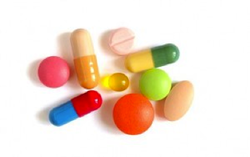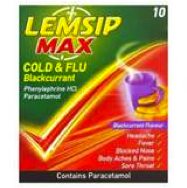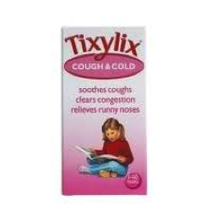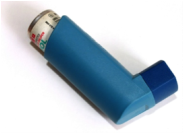Medicine, Drugs & Asthma

Did you know that anyone who belongs to the Amateur Swimming Association (that includes any member of the club over 9 years old) can be drug tested, at any time? Though in practice the first time you may come across this is at the National Age Groups and Youth championships. So as an athlete you have to be very careful what medicines you take, for any illnesses you have.
How do I know what is safe to take?
The World Anti Doping Agency (WADA) has determined that some medication may confer an unfair competitive advantage and have issued a list of those drugs and other agents that are banned for use by competitors. Many medicines are perfectly safe to use in sport, for example things like most asthma inhalers, paracetamol, ibuprofen, insulin, antihistamines. Steroids, ephedrine and pseudoephedrine (found in lemsip max; Tixylix cough & cold and other cold medicines) are not allowed. You can search online for the current status of all medicines.
Tell your doctor and/or pharmacist you swim competitively
If you need a medicine, always remember to tell your doctor or pharmacist that you are a competitive swimmer so that they can give you something suitable. Several products, even ones that you can get at the chemist, contain things that are banned in sport. Never take anything - any medicine or any supplement - like a food or drink supplement, without first checking that it’s OK for you to use as a swimmer.
How do I know what is safe to take?
The World Anti Doping Agency (WADA) has determined that some medication may confer an unfair competitive advantage and have issued a list of those drugs and other agents that are banned for use by competitors. Many medicines are perfectly safe to use in sport, for example things like most asthma inhalers, paracetamol, ibuprofen, insulin, antihistamines. Steroids, ephedrine and pseudoephedrine (found in lemsip max; Tixylix cough & cold and other cold medicines) are not allowed. You can search online for the current status of all medicines.
Tell your doctor and/or pharmacist you swim competitively
If you need a medicine, always remember to tell your doctor or pharmacist that you are a competitive swimmer so that they can give you something suitable. Several products, even ones that you can get at the chemist, contain things that are banned in sport. Never take anything - any medicine or any supplement - like a food or drink supplement, without first checking that it’s OK for you to use as a swimmer.

Medical Declaration Form
This form must be completed annually by anyone that is representing Great Britain or their Home Country internationally or competing in a British Swimming, ASA, SASA or WASA National event, whether they are on medications or not.
Therapeutic Use Exemption
If you have to take a banned substance for a legitimate medical condition you should first check with your Doctor to see if there are any permitted alternative treatments or medications. If this is not possible, when you reach the standard of a National Squad or are selected to swim for England or Great Britain, you will need to apply for a Therapeutic Use Exemption (TUE) to enable you to use your medication without failing a drug test.
Recreational drugs such as Cannabis, Speed & Ecstasy interfere with your chance of success. Sports people who use these tend to get more injuries, lose energy and concentration, and have reduced fitness. Some sports people have taken anabolic steroids to make them perform better or increase their body image. These actually mess with your health as they stop your body from developing properly. They can even cause boys to grow breasts and girls to grow more body hair.
This is CHEATING and will cause you to be banned from sport.
This form must be completed annually by anyone that is representing Great Britain or their Home Country internationally or competing in a British Swimming, ASA, SASA or WASA National event, whether they are on medications or not.
Therapeutic Use Exemption
If you have to take a banned substance for a legitimate medical condition you should first check with your Doctor to see if there are any permitted alternative treatments or medications. If this is not possible, when you reach the standard of a National Squad or are selected to swim for England or Great Britain, you will need to apply for a Therapeutic Use Exemption (TUE) to enable you to use your medication without failing a drug test.
Recreational drugs such as Cannabis, Speed & Ecstasy interfere with your chance of success. Sports people who use these tend to get more injuries, lose energy and concentration, and have reduced fitness. Some sports people have taken anabolic steroids to make them perform better or increase their body image. These actually mess with your health as they stop your body from developing properly. They can even cause boys to grow breasts and girls to grow more body hair.
This is CHEATING and will cause you to be banned from sport.

Where to find information
Current information about drugs and sport can be found on the UK Sport Drug Information Database (DID) www.uksport.gov.uk/did .
You can search for the current status of all specific medicines at www.globaldro.com/uk-en.
Further information about drugs and swimming, and declaration forms are available online at www.swimming.org/britishswimming/sports-sci/medical-information.
Current information about drugs and sport can be found on the UK Sport Drug Information Database (DID) www.uksport.gov.uk/did .
You can search for the current status of all specific medicines at www.globaldro.com/uk-en.
Further information about drugs and swimming, and declaration forms are available online at www.swimming.org/britishswimming/sports-sci/medical-information.
Asthma

Asthma affects 12-15% of children. Asthma is a disorder of the small airways of the lungs, which become sensitive to certain triggers causing them to narrow when they become inflamed, making it difficult to breathe. This will cause symptoms of shortness of breath, coughing, chest tightness and wheezing. Triggers vary from person to person but often include colds and viral infections, pollens and moulds, pets, dust, tobacco smoke, emotion and stress, cold air and some medications, such as aspirin. Unfortunately for swimmers, chlorine, used to clean swimming pool water, may be a trigger in some asthmatics. Some people’s airways narrow down during exercise. This is known as exercise-induced asthma and typically comes on after 5-10 minutes of a training session.
However, swimming is a sport at which asthmatics can and often do excel, as the warm, moist air of the indoor pool doesn’t trigger an attack. A number of the current British team have asthma and at least six Olympic Gold medalists in the aquatic events have been asthmatic.
However, swimming is a sport at which asthmatics can and often do excel, as the warm, moist air of the indoor pool doesn’t trigger an attack. A number of the current British team have asthma and at least six Olympic Gold medalists in the aquatic events have been asthmatic.
Declaration
Once asthma has been diagnosed a treatment has been started, it is mandatory that athletes attending British Swimming national events e.g. National Age Groups, declare this to the A.S.A together with details of any medication they are taking. This is essential to avoid falling foul of Doping Control regulations and must be done on an annual basis. Any subsequent changes in medication should also be notified.
Remember: it is your responsibility to keep the ASA informed.
List of Asthma Drugs that are permitted in Sport
Swimmers on International and Domestic Squads require an Abbreviated Therapeutic Use Exemption in order to take these medications.
However, for the competitive swimmer salbutamol tablets are NOT permitted and older inhalers such as isoprenaline, ephedrine, orciprenaline are banned.
Sometimes a short course of oral corticosteroid drugs is necessary to bring the asthma under control. If this is the case the swimmer must not compete until at least two weeks after the course has finished or they may test positive if subjected to Doping Control. Generally doping control occurs at National events and above.
The Drug Information Database, supported by UK Sport, allows you to search for your medications if you are worried that you might be taking a banned substance: www.didglobal.com
How do you know if your asthma is not well controlled?
Measuring the peak flow is one of the best ways of determining good control. Detection of a lower than normal level, or a declining level, should prompt an active review of treatment. The swimmer may complain of night time cough or wheezing or may have to get out of a training session due to wheeziness, cough or shortness of breath. If you are using your reliever inhaler every day this also is an indication of poor control and you should see your asthma nurse.
When to take your inhaler relative to training or an event
The reliever inhalers should be taken, if necessary, between 15 and 30 minutes before training or competition to allow maximum time to work properly. One to two puffs are particularly useful in those swimmers who suffer from exercise induced asthma.
The swimmer should NOT keep getting in and out of the water for a quick puff of their inhaler. Coaches should actively discourage this habit. This usually means that the asthma is not well controlled and the treatment needs to be reviewed.
However, the swimmer’s ‘rescue’ inhaler should be readily at hand if needed.
Never share inhalers or let another swimmer use your inhaler for fun.
http://www.asthma.org.uk/
http://www.swimming.org/britishswimming/sports-sci/medical- information/asthma-inhalers-and-competitive-swimmers/641/
Thanks to Littlehampton SC for medical and other training information.
Once asthma has been diagnosed a treatment has been started, it is mandatory that athletes attending British Swimming national events e.g. National Age Groups, declare this to the A.S.A together with details of any medication they are taking. This is essential to avoid falling foul of Doping Control regulations and must be done on an annual basis. Any subsequent changes in medication should also be notified.
Remember: it is your responsibility to keep the ASA informed.
List of Asthma Drugs that are permitted in Sport
- Salbutamol - e.g. ventolin - by inhaler only
- Terbutaline - e.g. Bricanyl - by inhalation only
- Beclomethasone - e.g. becotide - by inhaler only
- Salmeterol - e.g. serevent
- Sodium cromoglycate - e.g. Intal
- Montelukast - e.g. Singulair
- Budesonide - e.g. Pulmicort- by inhaler only
- Fluticasone- e.g. Flixotide- by inhaler only
- Theophylline- e.g. Nuelin
Swimmers on International and Domestic Squads require an Abbreviated Therapeutic Use Exemption in order to take these medications.
However, for the competitive swimmer salbutamol tablets are NOT permitted and older inhalers such as isoprenaline, ephedrine, orciprenaline are banned.
Sometimes a short course of oral corticosteroid drugs is necessary to bring the asthma under control. If this is the case the swimmer must not compete until at least two weeks after the course has finished or they may test positive if subjected to Doping Control. Generally doping control occurs at National events and above.
The Drug Information Database, supported by UK Sport, allows you to search for your medications if you are worried that you might be taking a banned substance: www.didglobal.com
How do you know if your asthma is not well controlled?
Measuring the peak flow is one of the best ways of determining good control. Detection of a lower than normal level, or a declining level, should prompt an active review of treatment. The swimmer may complain of night time cough or wheezing or may have to get out of a training session due to wheeziness, cough or shortness of breath. If you are using your reliever inhaler every day this also is an indication of poor control and you should see your asthma nurse.
When to take your inhaler relative to training or an event
The reliever inhalers should be taken, if necessary, between 15 and 30 minutes before training or competition to allow maximum time to work properly. One to two puffs are particularly useful in those swimmers who suffer from exercise induced asthma.
The swimmer should NOT keep getting in and out of the water for a quick puff of their inhaler. Coaches should actively discourage this habit. This usually means that the asthma is not well controlled and the treatment needs to be reviewed.
However, the swimmer’s ‘rescue’ inhaler should be readily at hand if needed.
Never share inhalers or let another swimmer use your inhaler for fun.
http://www.asthma.org.uk/
http://www.swimming.org/britishswimming/sports-sci/medical- information/asthma-inhalers-and-competitive-swimmers/641/
Thanks to Littlehampton SC for medical and other training information.
